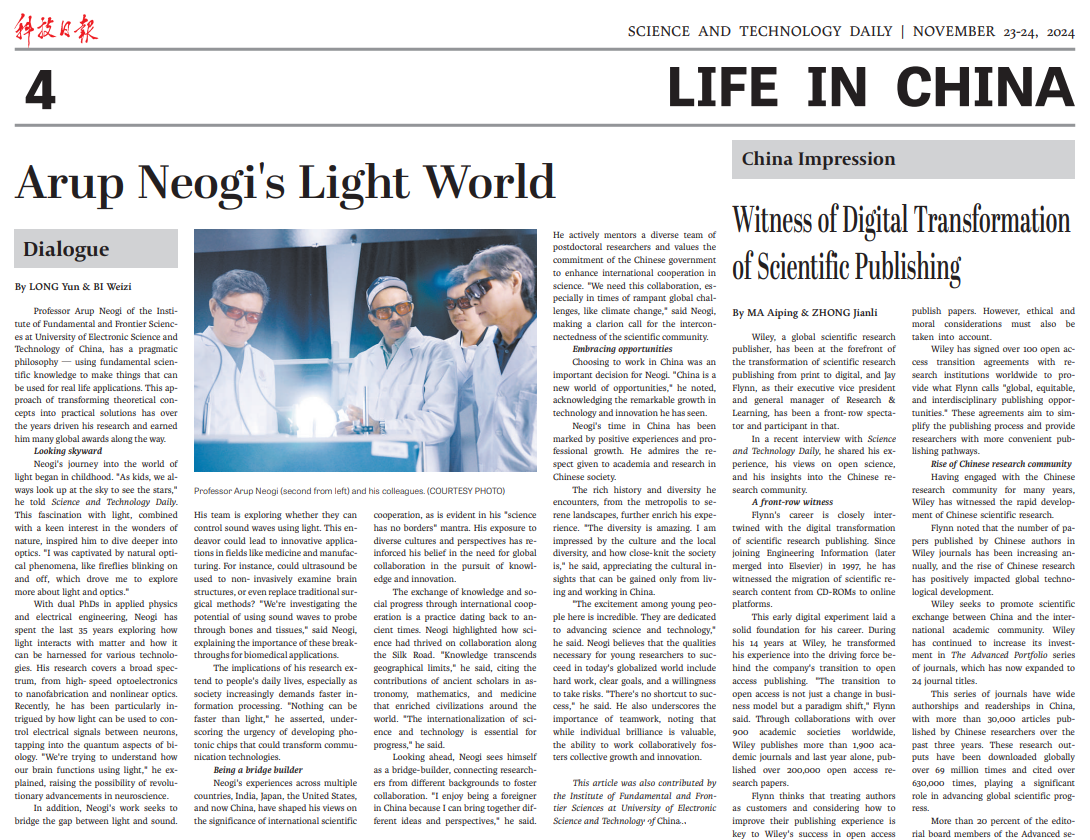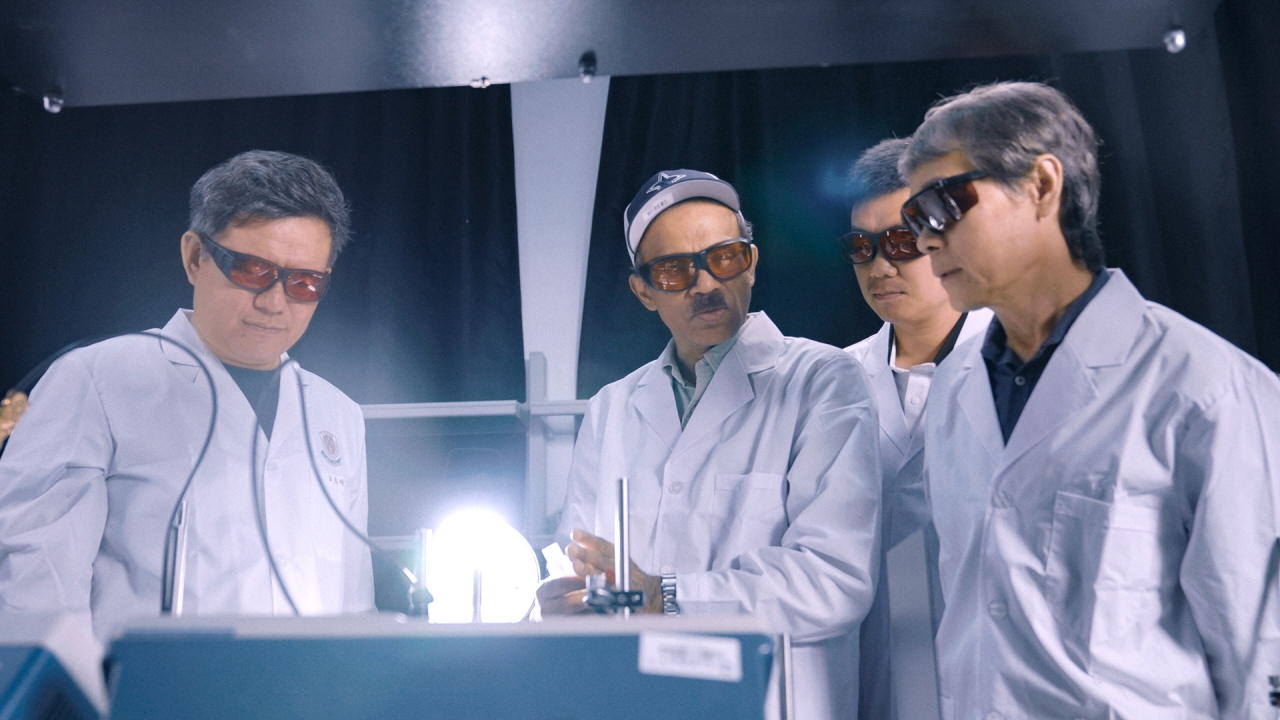即可将网页分享至朋友圈

Professor Arup Neogi of the Institute of Fundamental and Frontier Sciences at University of Electronic Science and Technology of China, has a pragmatic philosophy — using fundamental scientific knowledge to make things that can be used for real life applications. This approach of transforming theoretical concepts into practical solutions has over the years driven his research and earned him many global awards along the way.

Looking skyward
Neogi's journey into the world of light began in childhood. "As kids, we always look up at the sky to see the stars," he told Science and Technology Daily. This fascination with light, combined with a keen interest in the wonders of nature, inspired him to dive deeper into optics. "I was captivated by natural optical phenomena, like fireflies blinking on and off, which drove me to explore more about light and optics."
With dual PhDs in applied physics and electrical engineering, Neogi has spent the last 35 years exploring how light interacts with matter and how it can be harnessed for various technologies. His research covers a broad spectrum, from high-speed optoelectronics to nanofabrication and nonlinear optics. Recently, he has been particularly intrigued by how light can be used to control electrical signals between neurons, tapping into the quantum aspects of biology. "We're trying to understand how our brain functions using light," he explained, raising the possibility of revolutionary advancements in neuroscience.
In addition, Neogi's work seeks to bridge the gap between light and sound. His team is exploring whether they can control sound waves using light. This endeavor could lead to innovative applications in fields like medicine and manufacturing. For instance, could ultrasound be used to non-invasively examine brain structures, or even replace traditional surgical methods? "We're investigating the potential of using sound waves to probe through bones and tissues," said Neogi, explaining the importance of these breakthroughs for biomedical applications.
The implications of his research extend to people's daily lives, especially as society increasingly demands faster information processing. "Nothing can be faster than light," he asserted, underscoring the urgency of developing photonic chips that could transform communication technologies.
Being a bridge builder
Neogi's experiences across multiple countries, India, Japan, the United States, and now China, have shaped his views on the significance of international scientific cooperation, as is evident in his "science has no borders" mantra. His exposure to diverse cultures and perspectives has reinforced his belief in the need for global collaboration in the pursuit of knowledge and innovation.
The exchange of knowledge and social progress through international cooperation is a practice dating back to ancient times. Neogi highlighted how science had thrived on collaboration along the Silk Road. "Knowledge transcends geographical limits," he said, citing the contributions of ancient scholars in astronomy, mathematics, and medicine that enriched civilizations around the world. "The internationalization of science and technology is essential for progress," he said.
Looking ahead, Neogi sees himself as a bridge-builder, connecting researchers from different backgrounds to foster collaboration. "I enjoy being a foreigner in China because I can bring together different ideas and perspectives," he said. He actively mentors a diverse team of postdoctoral researchers and values the commitment of the Chinese government to enhance international cooperation in science. "We need this collaboration, especially in times of rampant global challenges, like climate change," said Neogi, making a clarion call for the interconnectedness of the scientific community.
Embracing opportunities
Choosing to work in China was an important decision for Neogi. "China is a new world of opportunities," he noted, acknowledging the remarkable growth in technology and innovation he has seen.
Neogi's time in China has been marked by positive experiences and professional growth. He admires the respect given to academia and research in Chinese society.
The rich history and diversity he encounters, from the metropolis to serene landscapes, further enrich his experience. "The diversity is amazing. I am impressed by the culture and the local diversity, and how close-knit the society is," he said, appreciating the cultural insights that can be gained only from living and working in China.
"The excitement among young people here is incredible. They are dedicated to advancing science and technology," he said. Neogi believes that the qualities necessary for young researchers to succeed in today's globalized world include hard work, clear goals, and a willingness to take risks. "There's no shortcut to success," he said. He also underscores the importance of teamwork, noting that while individual brilliance is valuable, the ability to work collaboratively fosters collective growth and innovation.
This article was also contributed by the Institute of Fundamental and Frontier Sciences at University of Electronic Science and Technology of China.
编辑:王晓刚 / 审核:刘瑶 / 发布:李果
即可将网页分享至朋友圈


